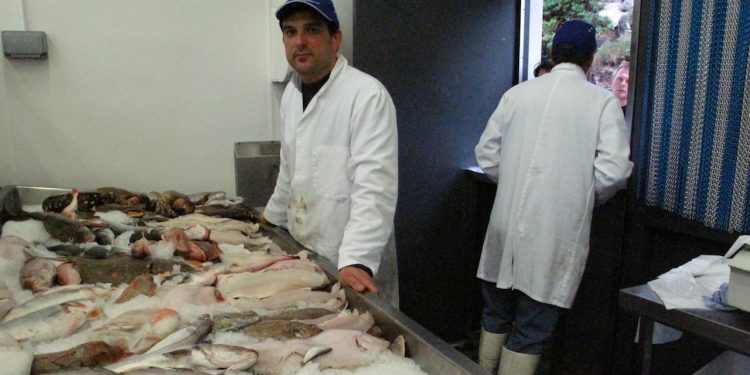Parliamentarians and representatives from a range of seafood industries came together to discuss issues affecting recruitment into seafood careers in Westminster on Wednesday 12 June. The event was the second public meeting of the All Party Parliamentary Group on Fisheries, a cross-party body focused on issues affecting the UK fishing and seafood sector.
The Careers on Land and at Sea seminar opened discussion on the challenges facing processing, fishmongering and the supply chain, and how to attract and train new recruits in these industries.
The number of people employed within each segment of the UK fisheries supply chain is significant with seafood processing alone accounting for around 18,000 jobs. However, there are concerns that not enough young people are being recruited to sustain this workforce. The Parliamentary event earlier this month, chaired by MPs Alistair Carmichael and Melanie Onn, brought together representatives from across the seafood sector to highlight where the most pressing challenges lie, and spark debate on potential solutions.
‘The seafood industry struggles to recruit and retain employees; this is mostly due to the ‘manual’ nature of processing work,’ said fishmonger Rob Wing, of Wing of St Mawes.
‘Government needs to reassess the value of seafood as a whole within our food industry. We manage the processing of the last bulk wild food source there is. I would welcome a recognised qualification and or apprenticeship opportunities for young people looking to acquire artisan skills. Seafood production is an integral sector of food production and will become increasingly important, should greater volumes of seafood become available for UK to process for both the home and export markets,’ Rob Wing said.
Drawing on a wealth of industry knowledge, CJ Jackson, Principle and Chief Executive of Billingsgate Seafood School, reflected on the little-known benefits of careers in seafood, and the role of building awareness through establishing lifelong habits.
‘Seafood consumption is still challenging in the UK, and if we can encourage everyone to eat more, and it becomes much more day to day, a career in seafood may be more appealing,’ CJ Jackson said.
Despite the diversity of seafood careers on offer, young people entering the jobs market see the sector as unattractive employment.
‘The biggest challenge is awareness of the opportunities within the sector,’ commented Simon Dwyer, Manager of Seafox Management Consultants. Like others at the event, he emphasised that this ‘is an exciting and multifaceted industry and needs to be portrayed as such.’
‘The biggest challenge is awareness of the opportunities within the sector for a career – not just directly in seafood processing itself, but within larger organisations working within technical, engineering, new product development, IT, finance, HR & buying,’ Simon Dwyer said.
The consensus was clear. The industry needs to work together to show that seafood careers are an opportunity worth seizing. With clearer messaging on the array of seafood careers available and cross-industry coordination, recruitment into seafood careers could receive a much-needed boost.
The next APPG on Fisheries meeting will cover seafood marketing and certification, with organisers hoping to attract a similar range of engaged voices from across the sector.









